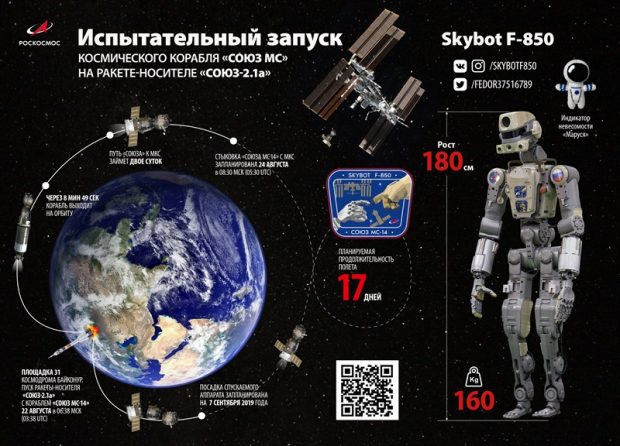
Soyuz-2.1a rocket blasts from Kazakhstan to deliver Fedor, Russian’s first robot to space

Baikonur Space Center: Russia on Thursday launched an unmanned rocket carrying a life-size humanoid robot.
Soyuz-2.1a carrier rocket took off from the Baikonur space center in Kazakhstan at 6:38 Moscow time to deliver to the International Space Station (ISS) the Soyuz MS-14 manned spacecraft with the first-ever robot sent by Russia on board.
Approximately nine minutes after the takeoff, Soyuz separated from the third stage and embarked upon a two-day journey to the ISS, Kazakhstan news agency Kazinform reported. At about 6:47 Moscow time, the spacecraft unfurled its solar batteries. The docking is scheduled for 8:31 am Moscow time on August 24.
Named Fedor, short for Final Experimental Demonstration Object Research, Russia’s Skybot F-850 android robot will spend 10 days learning to assist astronauts on the International Space Station. Fedor is 180 centimeters tall and weighs 160 kilos.
Soyuz-2.1a rocket will replace Soyuz-FG, which has delivered international crews to the ISS since 2002.
Russian space industry switched to a next-generation rocket after Ukrainian partners stopped deliveries of analog control systems installed on Soyuz-FG, the agency said.
As the two countries suspended cooperation in the space industry, Russia was left with a limited number of Soyuz-FG. The last launch of this type of rocket will take place on September 21. Soyuz-2.1a rockets are equipped with Russian-made digital control systems.


